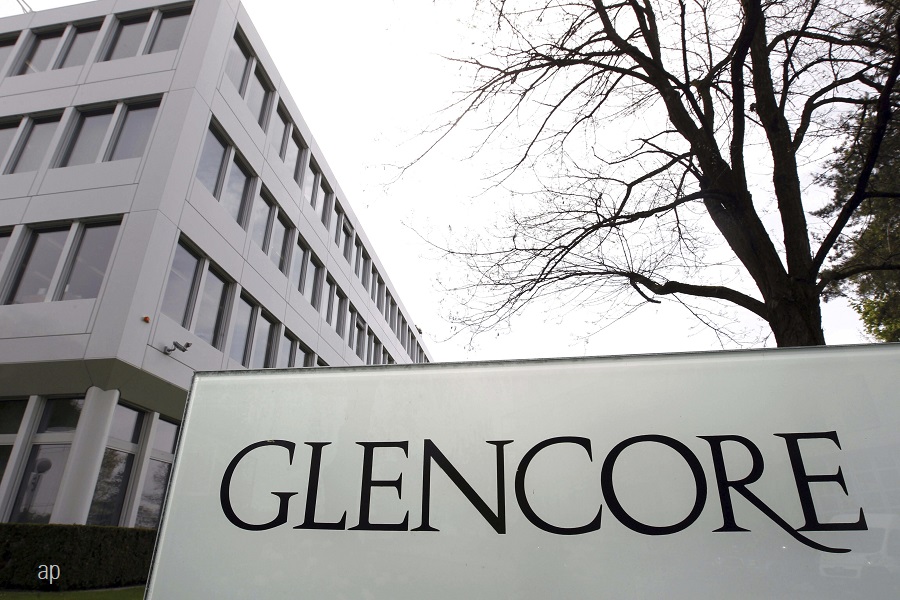
Teck Resources (TECK.B) earlier today said it has rejected an unsolicited takeover offer from Glencore (GLEN).
- In a statement, the Canadian miner made these key points:
- The Board is not contemplating a sale of the company at this time,
- The company’s planned split unlocks a broader range of strategic opportunities,
- Glencore’s unsolicited proposal carries a high degree of execution and timing risk, and
- Teck’s Board continues to recommend shareholders vote in favour of the proposed separation and dual class amendment.
Glencore’s Proposal Would Expose Teck Shareholders to Significant Risk, Company Says
Glencore planned to acquire Teck, and create two businesses, which would expose Teck shareholders to thermal coal and oil trading.
“The Glencore proposal would expose Teck shareholders to a large thermal coal business, an oil trading business and significant jurisdictional risk, all of which would negatively impact the value potential of Teck’s business, is contrary to our ESG commitments and would transfer significant value to Glencore at the expense of Teck shareholders,” said Jonathan Price, CEO of Teck.
Glencore’s proposal contemplates an all-share acquisition of Teck by Glencore offering 7.78 Glencore shares for each Teck Class B subordinate voting share and 12.73 Glencore shares for each Teck Class A common share, which represented a 20% premium for both on the date of the offer.
Teck’s Proposed Split Strikes a Fair Balance
Earlier this year, Teck announced a proposal to keep its copper and zinc businesses—to be renamed Teck Metals—and spin off its metallurgical coal business as Elk Valley Resources, or EVR. Teck shareholders would receive one EVR share for every 10 Teck shares plus their share of $200 million in cash, or about $0.39 per Teck share. Teck Metals effectively keeps much of the economic value of EVR through to at least 2028. Teck Metals will receive 87.5% of the following: a minimum of $7 billion in royalties from EVR, $4.4 billion from EVR’s repurchase of preferred shares, and 6.5% cumulative dividends on the preferreds while outstanding.
On first impression, Morningstar analyst Jon Mills thinks the proposed transaction strikes a fair balance between satisfying investor ESG concerns over Teck’s coal exposure while retaining most of the cash flow from metallurgical coal to end 2028 to invest in its large copper pipeline. “We will have more to say on the merits of the demerger ahead of the shareholder meeting for its approval, set for April,” he says, “We incorporate 2023 guidance and lower our fair value estimate for Teck to US$28.50 per share, down from US$31, driven by higher near-term unit cash costs and capital expenditure due to inflation.”
What About Teck and ESG?
Morningstar Sustainalytics notes that Teck’s metallurgical coal, zinc, copper and oil sands operations have a significant environmental footprint and expose it to associated clean-up liabilities, fines and lawsuits derived from potential air pollution, water contamination and noncompliance risks.
“Local communities affected by mining and oil sands operations have frequently challenged and opposed new projects, especially in Peru and Chile (combined 5% of FY2021 revenue), where water availability and quality are of concern. In Canada (72%) and the US (12%), proposed projects can garner strong Indigenous opposition due to health impact concerns. Steelmaking coal and controversial oil sands operations expose Teck to additional carbon liabilities in Canada,” says Morningstar Sustainalytics, “The company’s exposure to ESG issues has increased in the past year, largely owing to high and increasing water intensity, coupled with weaker financial performance. The company's overall exposure is high and is similar to subindustry average. Notable material ESG issues for Teck include Community Relations, Emissions, Effluents and Waste and Carbon - Own Operations.”









:quality(80)/cloudfront-us-east-1.images.arcpublishing.com/morningstar/RZFNNTX73BFEFFVRRAFYC6OEOQ.png)











